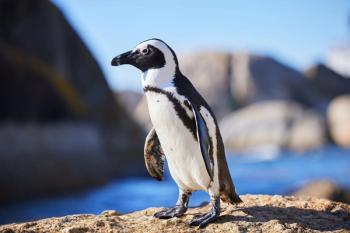
Common surgical procedures in small mammals (Proceedings)
When a pet is sick clients will often do some research and find that diet and environment is incorrect. Many times they make those changes just prior to their visit and report to you only the recent diet and environment. It is up to you and your staff to find out what the real situation is that the patient has been in prior to the visit.
Look at the Whole Patient
Full history including diet and environment and recent changes
-When a pet is sick clients will often do some research and find that diet and environment is incorrect. Many times they make those changes just prior to their visit and report to you only the recent diet and environment. It is up to you and your staff to find out what the real situation is that the patient has been in prior to the visit.
Watch the Patient During Amanesis
-While gathering the history sit and watch the patient's affect without the client or your staff interacting with the patient - how it stands, how it interacts with its environment, the expression on its face, whether the eyes appear to be bright and alert, the posture of its body, how it acts when it ambulates. A healthy patient will calm during this time and begin to interact and explore the new environment with time.
Full Physical Exam Looking at the Affected Part Last
-We often get so involved with the presenting complaint that we miss other problems that are less obvious and possibly more serious. Examine the whole patient and do not let the client distract you from examining the whole patient.
Watch How the Patient Recovers After the Exam
-A healthy patient recovers quickly from the stress of restraint and handling and resumes normal activity and curiosity about its environment.
Knowing what is normal for the species
-Avoid syringe feeding incorrect diets:
Biggest mistake is feeding a/d to herbivores
Have on hand carnivore, herbivore, omnivore and insectivore diets
-Mistaking the sex:
Don't assume that the owner knows the sex - be able to tell the sex of different species
-Anatomical structures:
Be prepared and knowledgeable about what is normal for that species
-sugar glider males - bifid penis; prepenile scrotum with long neck
-lateral vaginal canals in sugar gliders and opossums
-prairie dog testicle size varies with seasonal sexual activity
-Behavior:
Understand what is normal for that species so you can recognize what is abnormal (anointing in hedgehogs for example)
Perform diagnostics
Don't go straight to surgery without doing diagnostics or you may miss the real problem or bigger problems that may have affected your choice to do surgery or not. For example, don't teat the jaw abscess on the chinchilla or rabbit without skull xrays and a visual exam of the teeth.
Radiographs
Bloodwork
Culture and Sensitivity
Ultrasound
Fine Needle Aspirates
Cytology
General Considerations for Surgery in Small Mammals
Provide fluids
Keep the patient warm
Provide analgesia before, during and after surgery!
Monitor – minimally HR, Sp02, mm color
Antibiotics - appropriate for THAT species
Common Guinea Pig Surgeries
- Ovariohysterectomy
- Neuter
- Mass Removal
- Abscess
- Teeth Trim/Extractions
- Mammary Tumors
- Cystotomy
Guinea Pig OVH
- Hemoclips
- NO cat gut suture (most likely suture to create abscesses)
- Ovaries very dorsal
- Much fat in mesometrium
- Post op antibiotics needed as they are low to the ground
Guinea Pig Neuter
- NO cat gut suture (most likely to create abscesses)
- 2 prescrotal incisions
- Post op antibiotics needed as they are low to the ground
Why Spay a Guinea Pig? (Similar reasons for a rat and rabbit)
- Mammary tumors
- Cystic Ovaries
- Uterine Neoplasia
- Hydrometra
- Pyometra
Common Ferret Surgeries
- Adrenal hyperplasia/neoplasia
Best scenario is surgery and Lupron for comfort and longevity
- Insulinoma
Best scenario is surgery and prednisone ( other meds) for comfort and longevity
- Foreign Body Removal - mostly seen in younger ferrets but should be considered
whenever vomiting and diarrhea are present or with a waxing and waning of GI signs
and weight loss.
-rubber, foam rubber, plastic toys, trichobezoars,
- Mass Removal
-Mast Cell Tumor (tend to come and go, begin as peach discoloration, tend to come and go, need to remove if getting larger/ulcerating/irritating to pet)
Common Sugar Glider Surgeries
Neuter
Ovariohysterectomy – lateral vaginal canals with ureters close by
Distal Penile Amputation
Self Mutilation
Laceration Repair
Tail Injuries
Managing pain before, during and after procedures is most important in sugar gliders as they tend to self-mutilate with any irritation or pain.
Common Rabbit Surgeries
Ovariohysterectomy
Abscesses
Neuter – prescrotal incision preferred
Teeth trimming/extractions
Mass Removal
Cystotomy
Common Rat/Rodent and Other Sm. Mam. Surgeries
- Ovariohysterectomy
- Neuter
- Pyometra
- Mass Romoval
- Abscess
- Dental Cleanings
Mistakes I've Seen
Surgery on jaw abscess without skull xrays and teeth check
Teeth trimming in rabbits without proper speculum
Procedures done without benefit of diagnostics
Patient anesth..now what? RDVM calls me when the patient is on the table to ask how to do the surgery. Do your research before sugery!
Newsletter
From exam room tips to practice management insights, get trusted veterinary news delivered straight to your inbox—subscribe to dvm360.





